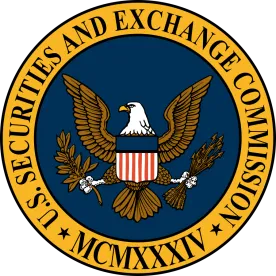On December 18, 2019, the Securities and Exchange Commission (SEC) proposed amendments (available here) to the definition of “accredited investor” designed to identify more effectively investors with the knowledge and expertise to participate in private offerings.
This proposal is part of a broader effort by the SEC to simplify, harmonize and improve the exempt offering framework under the Securities Act, in connection with which the SEC issued a concept release in June 2019 (available here). The public comment period on the proposed amendments expires on March 16, 2020, following which the SEC may make the amendments final by publishing an adopting release.
Why is the definition of accredited investor important?
A person or entity that qualifies as an accredited investor is permitted to participate in investment opportunities, especially those involving private companies, that are generally not available to non-accredited investors. This definition is a key element of Rules 506(b) and 506(c) of Regulation D - two important exemptions from the registration requirements under the Securities Act. In 2018, the estimated amount of capital reported as being raised under these rules was $1.7 trillion, compared to $1.4 trillion in public offerings.
What are the proposed amendments?
If adopted as proposed, the amendments would:
-
Add a new category of accredited investor for individuals who have certain professional certifications, designations or other credentials that the SEC would, from time to time, designate as qualifying for accredited investor status by means of an order posted on its website. The SEC proposed including Series 7, 65 and 82 licenses in the initial order accompanying the final rule, while the rule itself would include a non-exclusive list of attributes the SEC would consider in expanding the certifications, designations or other credentials to be included in this new category of accredited investor in the future.
-
Add a new category of accredited investor for investments in private funds by individuals who are “knowledgeable employees” (as defined under the Investment Company Act) of that fund or its affiliated management company. Private funds are private equity funds, venture capital funds or hedge funds that rely on Sections 3(c)(1) or 3(c)(7) of the Investment Company Act. Knowledgeable employees include executive officers, directors, trustees, general partners, advisory board members, or persons serving in a similar capacity, of the private fund or an affiliated management company, and employees of the private fund or an affiliated management company (other than employees performing solely clerical, secretarial, or administrative functions) who, in connection with their regular functions or duties, have participated in the investment activities of the private fund or certain affiliates for at least 12 months.
-
Add certain entity types to the current list of entities that qualify as accredited investors. The proposal would add registered investment advisers and codify existing SEC guidance qualifying limited liability companies with total assets in excess of $5 million that were not formed for the specific purpose of acquiring the securities offered.
-
Add a new category of accredited investor for any entity owning “investments” in excess of $5 million that was not formed for the specific purpose of investing in such securities. · Add a new category of accredited investor for “family offices” with at least $5 million in assets under management and their “family clients” (as such terms are defined under the Investment Advisers Act).
-
Add “spousal equivalents” to the accredited investor definition, enabling them to pool their finances for the purpose of qualifying as accredited investors. (The current financial thresholds – net worth of $1 million or annual income of $200,000 individually or $300,000 jointly – would remain the same.)
-
The SEC’s proposing release also solicited comments on the current financial thresholds in the definition of accredited investor.
How do we see the proposed amendments affecting our clients?
By broadening the definition of accredited investor, the amendments, if adopted as proposed, could have the effect of significantly increasing the pool of potential investors in private offerings. This could benefit both investors, particularly those with financial sophistication who previously failed to qualify as accredited investors, and companies and private equity and other funds, by improving their ability to raise capital in the private capital markets and reducing competition among companies for investors and therefore the cost of capital. The amendments are expected to facilitate small business capital formation, including for early-stage and high-growth companies. The pool of potential investors could grow further if and when the SEC expands the new accredited investor category based on professional certifications, designations or other credentials.
The management companies of many funds have employees who meet the definition of knowledgeable employees under the Investment Company Act, but who are prevented from investing in the fund because they do not meet the income or net worth requirements of the current accredited investor definition. The proposed amendments would qualify such knowledgeable employees as accredited investors.






 />i
/>i

